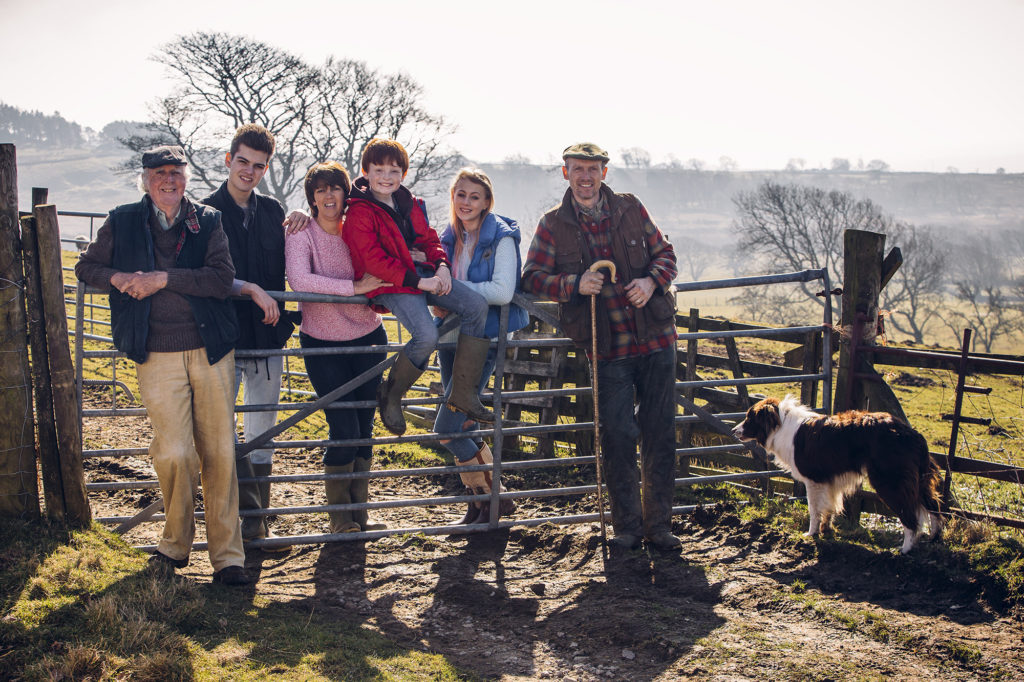Who will succeed you in the family farming business?
Mike Bracegirdle, head of our Agriculture department, and who specialises in succession planning, looks at the options for those farmers looking to retire who have no successor in place to take over their business.
Although farming via a limited company is becoming a more popular option, the vast majority of enterprises are either sole traders or partnerships. Those farmers who are farming either as a sole trader or in partnership are usually part of a family unit where a successor, perhaps a son or daughter, nephew or niece, has been identified.
For those farmers who have no direct successor and are considering retirement, choices have to be made and it is important that those choices are made at the earliest stage possible and the appropriate advice taken.
This decision-making process is just as important for those farmers who are tenant farmers as those who are owner-occupiers. (Note; for the tenant farmer farming under an AHA tenancy, it might be wise to await the recommendations of DEFRA in relation to succession tenancies.

Land Registry
For those farmers who are owner-occupiers, the first step is to make sure that the land is registered and the Land Registry plans accurately represent the area of land currently being farmed. Farming land may have been in the family for decades without any formal transfer of ownerships having taken place. Boundaries may have changed, whether intentionally or not. All these issues can take time to be resolved and are best being dealt with early on.
Wills
Owner-occupiers should also ensure there is at least a “basic” Will in place. This will ensure that the land and the business go to who it is intended for if the owner should die. The Will may be changed at a later date once detailed succession planning advice has been given but it avoids the Intestacy Rules kicking in which could severely complicate matters.
Round Table Meetings
Having sought advice and ensured that the land is registered and accords with the position on the ground and that there is a basic Will in place, it is always sensible to then set up a meeting with the farmer’s existing land agent, accountant and/or legal advisers.
By setting up a round table meeting, the farmer can indicate what his “best case scenario” is for retirement, whether it be complete retirement or wanting to retain an interest in the farm or at least in the general day-to-day farming operations. Talking things through with an agricultural adviser would give a better idea as to the terms which might be available under the various options; the accountant can also provide advice in relation to the potential tax implications and the legal advisers can give advice as to the best way to implement any decisions which have been made and to put the legal framework in place.
Ultimately everyone’s situation is different and that is why it is important to talk things through with those who are best qualified to give guidance and advice.
What are the options?
1. Sell the farm
If you want a clean break, selling the farm can be a solution.
A sensible starting point would be to get the farm house and land valued and decide then whether or not to sell the farm house by auction, tender or private treaty. At that point in time, a meeting between your accountant, land agent and/or legal advisers is appropriate. Decisions will have to be made as to whether or not to sell the farm as a whole or in lots; what is the best time of year to sell; is there a possibility for a “planning gain”; would it be sensible to make a pre-planning application for barn conversions? If a planning application for barn conversions was successful, then there will be implications for a payment of capital gains tax. Equally however if a sale of the farm is accompanied by a retirement, it may be possible for the farmer to obtain Entrepreneur’s Relief on capital gains, which is approximately 10% of the current tax rate.
2. Let the farm out as a whole
For those farmers and land owners who are not prepared to give up their farm completely and no longer want to live in the farm house, letting the farm out as a whole may be a sensible option. It is important to note that this particular route does not provide capital to reinvest but the tenancy could provide a reasonable income to help support retirement.
Again, advice from your agricultural adviser and land agent, prior to letting the farm out under a Farm Business Tenancy would be the sensible option to take and taking accountancy and legal advice in relation to both the tax implications and the setting up of a Farm Business Tenancy.
For Agricultural Property Relief (from Inheritance Tax), Farm Business Tenancies are far more tax favourable than the letting under an Agricultural Holdings Act tenancy.
3. Shared or contract farm agreement
This is the option which many farmers consider who wish to “retain an interest”. When farming has been “in the blood” and has been the only source of livelihood for many years, it is very difficult for many farmers to simply walk away. This allows the farmer to remain in the farm house, take an active part in the farming business but not have to work on a full time basis.
Contract and shared farming agreements must be set up properly to protect the Agricultural Property Relief in relation to Inheritance Tax.
The main concern is to demonstrate that the farmer is still involved in the farming activities or decisions, for example set up regular meetings with contractors to discuss the cropping options.
A meeting with the agricultural adviser/land agent and legal adviser is a sensible option before any commitment is made.
4. Cropping and grazing licences
This option allows a famer to stay in the farm house and let the land out on cropping and grazing licences.
The licences need to be set up with a land agent to ensure that all parties are aware of their obligations and the farmers need to keep a record of their receipts so their successor can prove that they have been farming the property. You would need to demonstrate that you have been spending money on the land and not merely letting it out. This means maintaining the land, fertilising, providing for boundaries and hedgerows, general maintenance. In certain circumstances, this work can be contracted out and it needs to be paid for by the farmer, otherwise difficulties could arise in claiming the Agricultural Property Relief for Inheritance Tax purposes in the estate.
Contact our Agriculture team at our Gadbrook Park office on 01606 334 309 to find out more about how we can assist you.
For a no obligation discussion call 01606 334309 and ask for Mike Bracegirdle.

Mike Bracegirdle